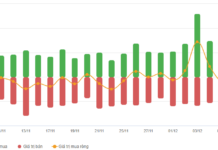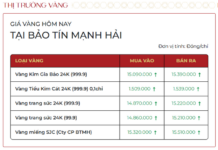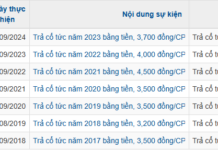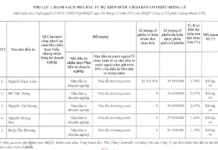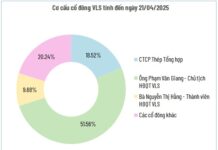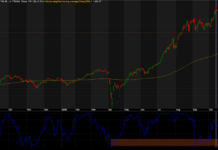Mr. Do Danh Thanh, Deputy General Director of Technology Consulting and IT Transformation Services at Deloitte Vietnam, raised crucial points regarding human resource development in the new context.
 Mr. Do Danh Thanh, Deputy General Director of Technology Consulting and IT Transformation Services (Deloitte Vietnam).
Photo: NVCC |
How do you assess the current policies on high-quality human resource development and science and technology in meeting Vietnam’s socio-economic development requirements?
– Mr. Do Danh Thanh: In recent years, Vietnam has issued and implemented numerous significant policies aimed at developing high-quality human resources and promoting science and technology. The national strategies for education, science and technology, and digital transformation have laid the groundwork for practical initiatives. However, from a socio-economic development perspective, it is evident that the policies have only partially met expectations, and there remains room for improvement in terms of content and implementation methods.
Specifically, in the area of high-quality human resources, our observations indicate a skills gap in the digital realm, particularly in fields related to data, artificial intelligence (AI), cloud computing, and cybersecurity. Meanwhile, training programs remain largely theoretical, lacking in application and flexibility to meet the rapidly changing market demands. This challenge is not unique to the public sector but also poses new demands on private enterprises in enhancing their internal capabilities.
Given that Vietnam has a young generation that is quick to embrace technology and adept at adopting new models, can businesses expect a breakthrough in human resources in the near future?
– While the younger generation, particularly Gen Z, is leading the way in adopting new technologies such as AI and generative AI (GenAI), most organizations are not yet fully prepared in terms of governance, infrastructure, and training. Notably, despite AI’s potential to save time and enhance productivity, many businesses in the region lack long-term strategies for developing digital skills for their employees, encompassing both technical skills and digital mindset, adaptability, and problem-solving abilities in complex environments.
Turning to the aspect of science and technology, our observations suggest that Vietnam’s investment in research and development (R&D) remains modest, failing to provide a strong impetus for innovation among enterprises. The current policies supporting technological innovation are not sufficiently encouraging for private enterprises to boldly apply advanced technologies in their production and business operations. Investment in R&D in Vietnam is still modest compared to the country’s development needs and economic potential.
According to a 2022 World Bank report, Vietnam’s total expenditure on R&D amounted to only about 0.42% of GDP, significantly lower than the average for economies at a similar level of development and far from the country’s target of 1.5% of GDP set for the period up to 2020 (World Bank, Vietnam Science, Technology and Innovation Report, 2022). Notably, the majority of R&D resources come from the public sector, while the private sector, which is expected to be the driving force of innovation, has contributed very limitedly.
Vietnam’s digital transformation is taking place rapidly and contributing positively to economic growth. However, most businesses’ level of digital maturity remains low compared to regional peers, and their role in the global supply chain is still very limited. What are the reasons for this situation?
– Digital transformation in Vietnam is happening at a rapid pace, making a distinct contribution to economic growth and enhancing the country’s competitiveness. Significant progress has been made in various sectors, including banking, e-commerce, manufacturing, and public services. Notably, key policies such as Resolution No. 57-NQ/TW on developing high-quality human resources and Resolution No. 68/NQ-CP on developing science, technology, and innovation by 2030 demonstrate the government’s commitment to promoting a digital economy, building a digital society, and preparing human resources for the digital era. However, when assessed substantively, the digital maturity of most Vietnamese enterprises remains low compared to regional peers, and their role in the global supply chain is still modest.
With our extensive experience in accompanying businesses on their digital transformation journeys and large-scale IT system transformation, we attribute this not only to technology but also to other factors such as strategy, people, data, and operating models. When applying the Digital Maturity Framework developed by Deloitte, the challenges faced by Vietnamese enterprises across all six pillars become apparent: digital strategy and leadership, customer experience, operations and value chain, technology, data and people, and organizational culture.
Could you elaborate on the challenges within these six pillars?
– On the strategic front, many businesses lack a clear digital vision and have not established a digital roadmap that aligns with their growth objectives and core competencies. The absence of digital leadership thinking leads to digital initiatives that are disjointed and more technical than strategically transformative. This bottleneck contrasts with the requirements set forth in Resolution 57, which emphasizes the need for enhanced leadership and management capabilities in the context of digital transformation and the development of human resources capable of adapting quickly to innovation.
In the customer experience pillar, enterprises have only digitized touchpoints without truly optimizing the customer journey through data. Technologies such as AI, behavioral analytics, and personalized services remain underutilized. In contrast, advanced enterprises in the region have progressed to “customer-led innovation,” using data as a central pillar to reshape products and services, in line with the orientation of Resolution 68, which promotes data-driven and digitally enabled innovation.
Regarding operations and supply chains, Vietnamese businesses largely operate manually and in isolation, lacking real-time connectivity with partners and customers. This weakness hinders their ability to integrate deeply into global value chains. In consulting projects in the region, Deloitte has applied solutions such as digital twin, smart supply chain, and IoT integration, which Vietnamese enterprises have yet to access due to limited technological foundations and implementation capabilities.
Moreover, data (considered the “fuel” of digital transformation) is still not recognized as a strategic asset. Data governance is weak, data is fragmented and lacks standardization, and it is not adequately leveraged to create business value. This situation contradicts the spirit of Resolution 68, which emphasizes the role of data, core technologies, and digital infrastructure in national innovation.
Finally, people and organizational culture pose significant barriers. Many enterprises have not focused on developing internal digital capabilities or formulating strategies for retraining or fostering a culture of innovation. This contrasts with Resolution 57’s emphasis on building high-quality human resources and enhancing adaptability in the context of comprehensive digital transformation.
Hoang Ngoc
– 14:00 01/09/2025
“Forging a New Era in the Semiconductor Industry.”
“Ho Chi Minh City is paving the way for the semiconductor industry with a range of supportive policies and initiatives. With a vision to become a hub for high-tech industries and modern services, the city is developing state-of-the-art industrial parks, attracting both domestic and foreign investments in the field of semiconductor technology.”
The Great Banking Shuffle: Navigating the Industry’s Turbulent Times
The wave of layoffs in the banking industry reflects a significant shift in business models and the growing impact of AI.
The Blockchain Company Proposed a Significant Initiative for Da Nang
The Vietnam Blockchain Multi-chain Service Network, or VBSN, is proud to announce its proposal to implement three innovative solutions in the public service area of Da Nang. With a focus on revolutionizing the way services are delivered, VBSN is set to make a significant impact with its cutting-edge technology.
“FE CREDIT: Illuminating Dreams for 15 Years and Beyond”
“For over a decade, FE CREDIT has been a pioneer in the consumer finance industry, serving as a conduit for capital to reach millions of customers who were previously unable to access traditional banking services. FE CREDIT has revolutionized the financial landscape, empowering individuals to achieve their goals and aspirations by providing them with the financial tools and resources they need to thrive.”


